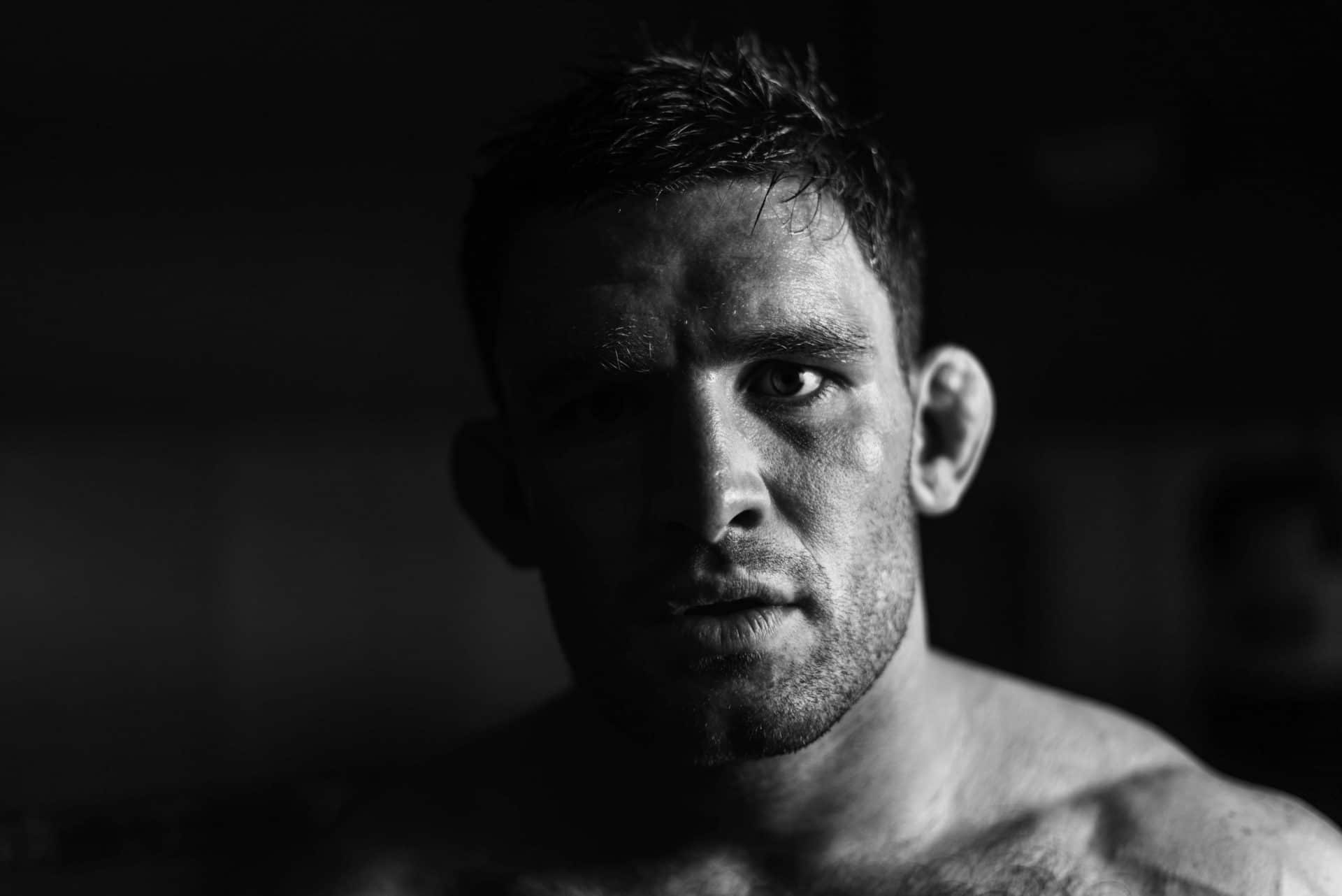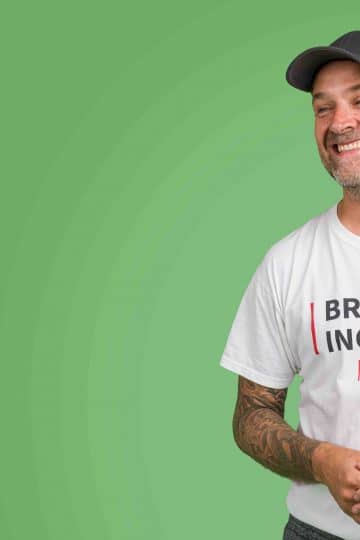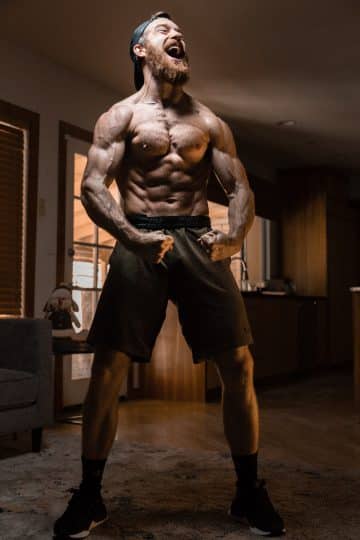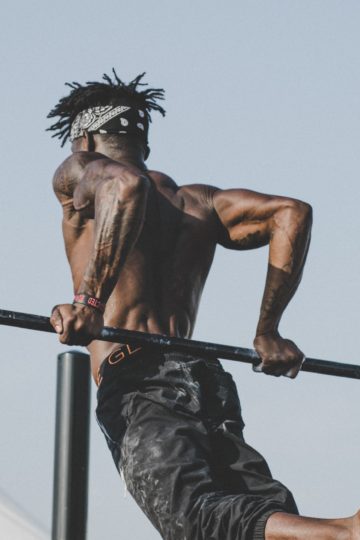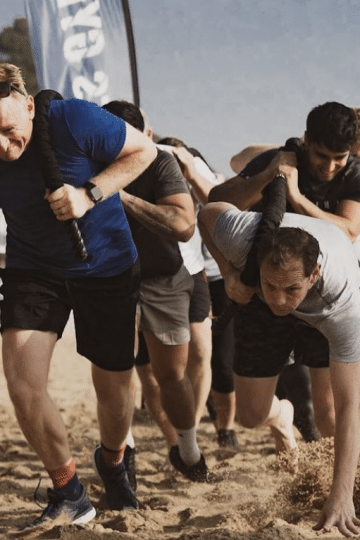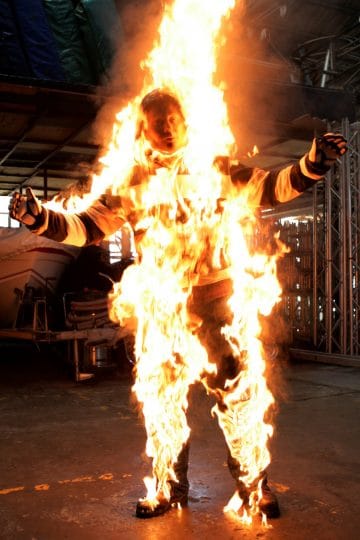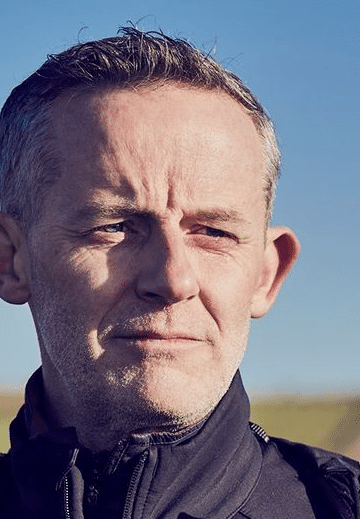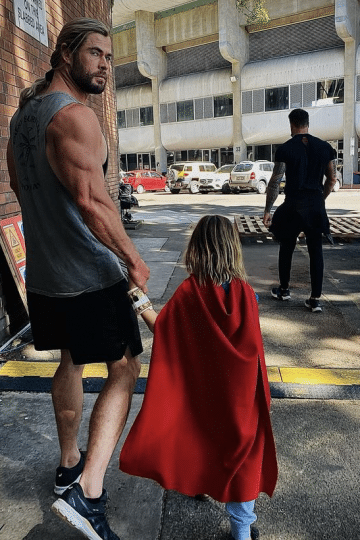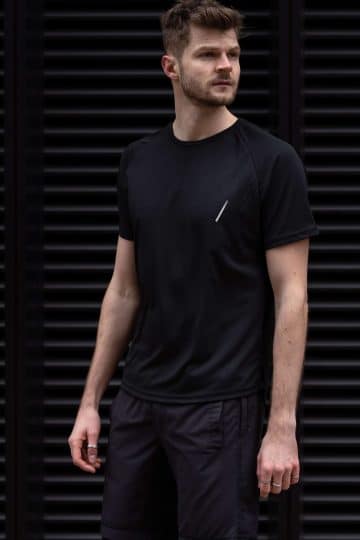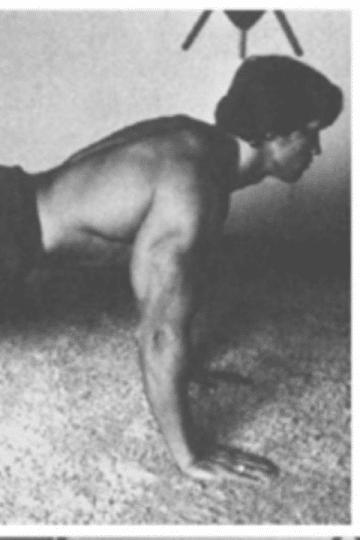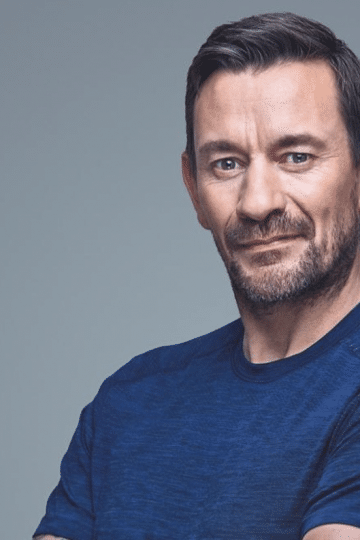Men and vulnerability – the StrongNotSilent campaign
Fitness
An interview with Chris Baugh from Manor Gyms about their striking StrongNotSilent campaign which shows tough men and vulnerability can go together.
One of the most striking campaigns that emerged around World Mental Health Day was the StrongNotSilent campaign. Showcasing black and white shots of ‘hard men’, including The Book of Man’s columnist Jason Fox, with the message that even the toughest guys need to talk sometimes, it became a viral hit. The campaign was the brainchild of Manor Gyms, a new fitness group founded by ex-MMA fighter Charlie Watts, along with ex-pro boxer Chris Baugh, who worked in collaboration CALM and clothing brand Lululemon. One of the key aspects of the campaign is a series of events which combine hardcore fitness sessions with panel discussions on issues like relationships, culminating in a fight night in a couple of weeks which also includes a chat about vulnerability. By combining such extremes of hardcore fight training and emotional openness they are a remarkable new brand operating in this area. We sat down with Chris for an in-depth chat about being a man, martial arts culture, and how emotional strength is as important as physical strength, but requires more bravery for men to display it.
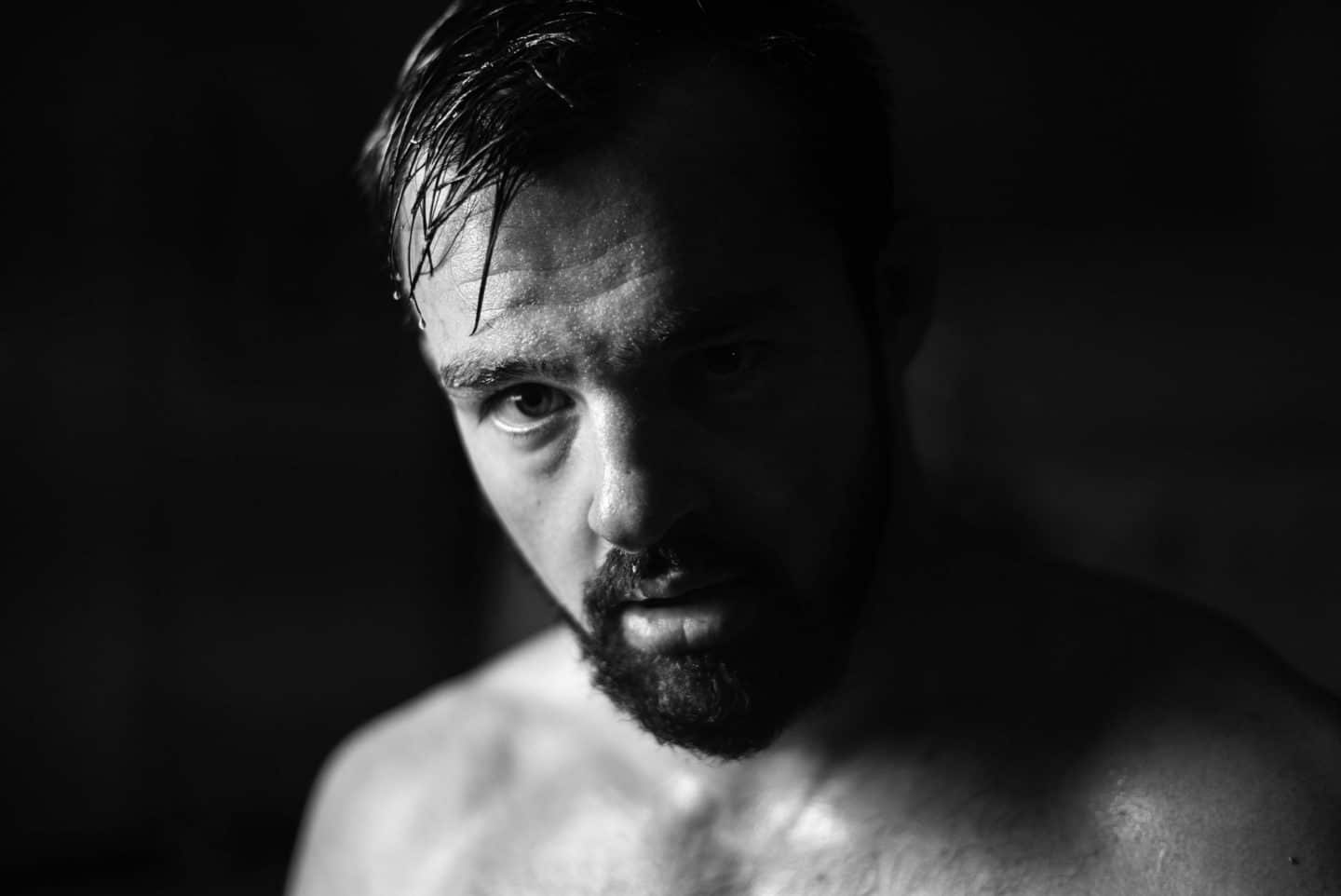
The origins of Manor
Charlie is a retired MMA fighter. I’m a retired professional boxer. Neither of us really consider ourselves as being part of the fitness business, where there’s a lot of lies and marketing that plays upon people not being happy with their lives or feeling bad about the way they look. This is all quite different from a martial arts background where it’s about learning, progression and development. It’s not about being unhappy about where you’re at, it’s about where you want to go. We thought that was sorely missing.
Not for show
The idea was to create a brand and an ethos which takes more of a martial arts way of doing things into training. It’s about self-improvement and self-development, not keeping up the Joneses or being seen to do the right things on Instagram.
The vast majority of our coaches are ex professional athletes, mainly ex fighters – boxers, Muay Thai, MMA – and the idea is to get people hooked on performance, and get in touch with their athletic ability, rather than being about superficial aesthetics. If you focus on moving better, being stronger, learning new skills, getting greater control of your body, and are in an environment where you’re being challenged and stimulated and supported, you’re going to do better. If you stay consistent with training, your body is going to change and you are going to look better naked, but it’s not the focus.
We don’t allow selfies in our gyms, there’s a strict no phones policy during sessions. Coming from martial arts gyms, people who took their phones out during sessions was never tolerated. And we continue to crack down on that.
The fight mentality
What makes us different it that we bring a fight mentality. Anybody who has been in a culture of training competitively knows you set a goal and then you struggle for it. There is pain involved in progress – it won’t happen by itself. That’s at the heart of what we are and coming from, and people who come here appreciate that we don’t sugar coat it. When you learn a new skill you have to appreciate that you’ll be crap at it for a while.
I think the way that the leisure industry, and everything really, is moving towards having things faster, easier, and instantly gratifying. The fitness industry in particular has been afraid to ask people up front for commitment. Not financial commitment – they’re very good at that! – I mean they’re not good at holding you to your fitness. Our ‘sales’ team are actually a community team – it’s their business to know who’s there and who’s not there. All the coaches know their flock and hold their flock to account. It’s not a snazzy marketable message, but people are now seeing through this idea of fitness can be what you want it to be. I think people are ready to see that it’s not what you want it to be, it’s what the people who know tell you what it is, and you can either get on board with that or not.
If you’re there as a student, you’re there to learn, which is the martial arts culture. Don’t presume to know. If you lose that student attitude that’s when you lose that receptivity to new learning and ultimately you’re not going to enjoy training as much.
StrongNotSilent
Charlie decided to run 29k for his 29th birthday, with no training – he’s a bit of a nutcase for challenges. He wanted to raise money for a charity and he chose CALM and in about 24 hours he raised £1k, and it really resonated. What he was doing was impressive but who he was doing it for really resonated with his community and it started conversations in the gym. As we spoke more about the issues that CALM deals with we realised that a lot of our coaches and a lot of the members had been personally affected by male suicide or depression, and we realised we were only having this conversation because Charlie had opened it up.
The more we spoke about it the more we realised there was an untapped need. We had a charity boxing match due and we decided to nominate CALM for that. And I had a relationship with Lululemon and I spoke to them a clothing collaboration, where again proceeds of go to CALM. So StrongNotSilent developed. We thought we should have a launch event and then we thought, this is a big thing, let’s go for a series, and that’s where it grew into 4 panel conversations about the key ideas which men think about but don’t necessarily talk about.
The campaign is about making it a bit more normal for men to speak. The objective is to normalize men sharing. A lot of issues come from a lack of communication.
Tough Guys Hurt Too
A few people said for some tough guys to talk about such issues is quite powerful. We began to realise that as fighters we are viewed as a certain type of man. And if we led from the front, being honest and open and to share, it would have a bigger impact because we are seen as strong men. If we can acknowledge that silence is not part of our strength, and a willingness to open up about things we find difficult is an good indication of strength. And if we did that people might take notice and that’s what happened. The campaign had this ripple effect where other people with followings who are seen as strong men, also took the lead. You had professional fighters, UFC legends, pro rugby players – it magnified the voice. Then the public responded – it was amazing it snowballed really quickly, we did not anticipate it at all.
Men in Crisis
A lot of men feel more nervous about being men. Men are struggling now in a way they weren’t before. Traditional male identities are being attacked or critiqued in a way where men have to now go out and find their own identities. I think it’s not easy if you’re not coming from a strong class background or tribe background – for us its easy because we were fighters or athletes, and those developed our norms. If you’re not coming from that if you work in an office doing something you’re not that fussed about, most of the judgements on what kind of man you are get made on what you did at the weekend, what clothes you wear, what kind of music you listen to, all this kind of taste factors that weren’t really a big deal before. It’s confusing for a lot of guys.
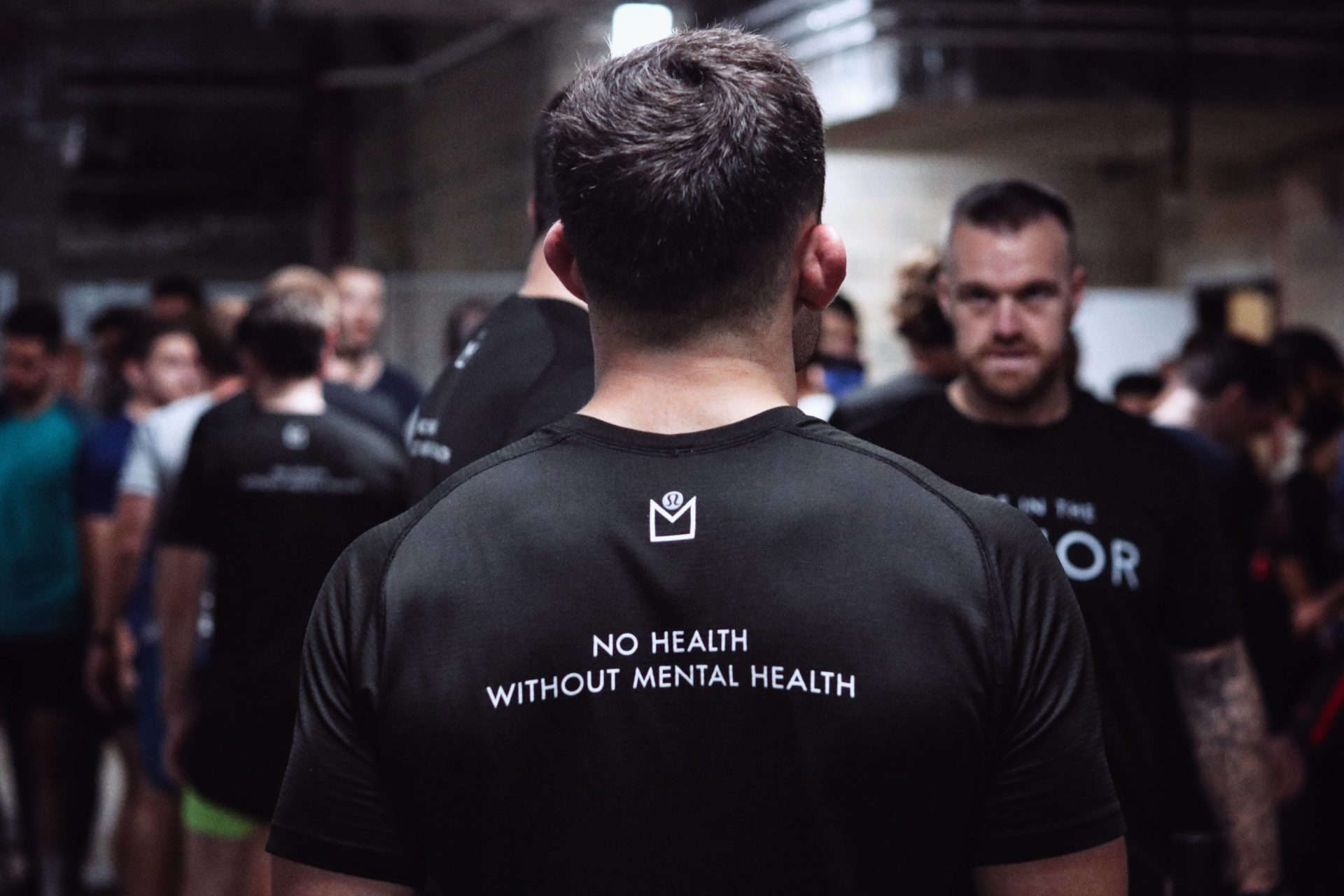
Training and Talking
Growing up I was involved in martial arts from 6 years old, then in kick boxing then boxing, and my training was always a part of my social life and a contributor to my sense of connection. We followed that methodology for our events for the StrongNotSilent series. In 3 of the 4 events you train and talk. We saw it as pivotal that before people have a chance to feel insecure or awkward they were out sweating, doing a relatively tough session that’s a good leveller. When everyone’s struggling through training, you’re all united thinking, ‘this coach is a bit of a bastard!’ It breaks that ice and builds that bond. Ad That sweat means by the time people made the talk and listen to people being very open and vulnerable, there’s already that level of trust in the room – that’s why those events are very special, they have a higher level of openness and honesty.
Fight Night
Our final event on the 15th November is a fight night, which also has a panel talking about vulnerability.
It’s a theme that underpins a lot of the other areas. In all the talks it came down to the speakers talking about the areas they feel vulnerable in their lives. Vulnerability, or your determination not to allow yourself to be vulnerable, underpins a lot of people’s mental health issues. We thought we’d explicitly address it on the fight night as an interesting juxtaposition.
I’m going to be speaking with one of the other coaches, who is a two times world champion Muay Thai fighter. We’ll be talking about vulnerability in our worlds, which is not what people expect. People don’t get how warm and caring the fight environment is. Its looks harsh but there’s a lot of care in there, and a lot more permission to be vulnerable because you have to accept your physical vulnerability. There’s no negotiating that. If you’re sparring and there’s someone better than you, they’re either beating you up or they’re not beating you up and you know they could be – there’s no way around that. So if you get comfortable with that, you become aware of other things that you feel vulnerable in, and you’re likely to share it because you’ve already proved yourself. There’s less hang-ups about if you’re tough.
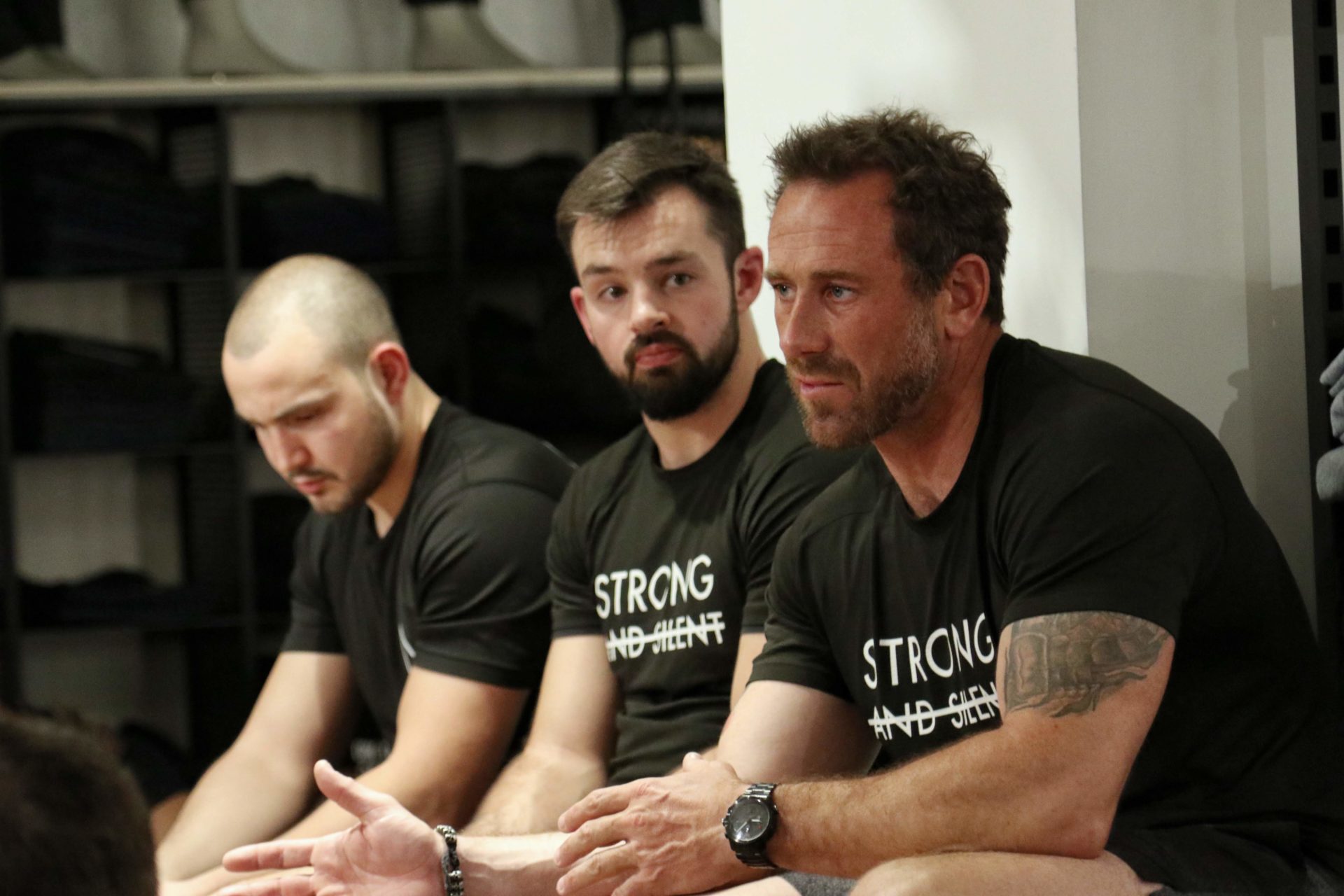
Physical vs emotional bravery
All of the people that we’ve spoken to are way more afraid of putting themselves out there emotionally than about putting themselves through hell physically. Being a fighter or an athlete or a Special Forces soldier like Foxy, is a painful job. It’s constant pain to get where you need to go, but hat’s infinitely easier for them than to stand up in front of people and talk about their feelings. I think that the same for most men – it’s much harder to put yourself in an emotionally vulnerable state than a physically vulnerable state. Neither of them are easy.
Buy tickets for the remaining My Manor StrongNotSilent events.

Join The Book of Man
Sign up to our daily newsletters for everything a progressive man needs...

Join The Book of Man
Sign up to our daily newsletters to join the frontline of the revolution in masculinity.




